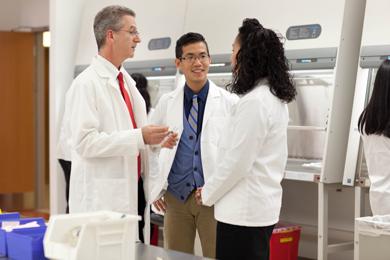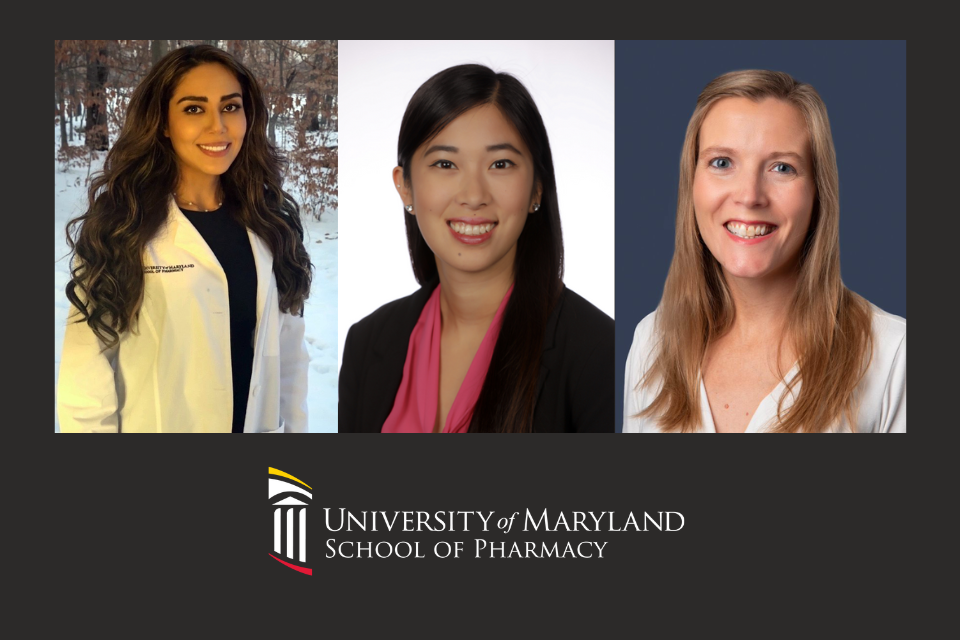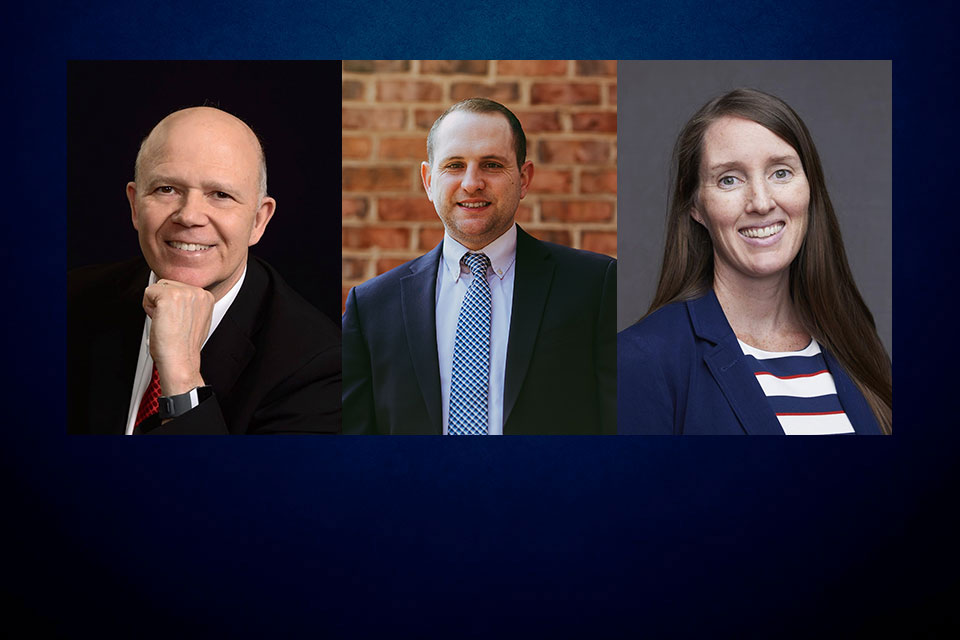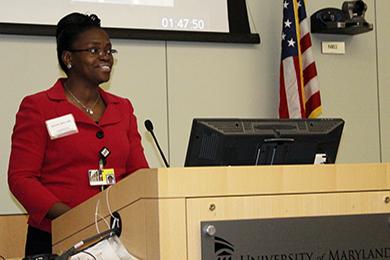SOP Preceptors Provide the Guidance Students Need to Succeed
Top-notch preceptor sites and services allow the School of Pharmacy’s Experiential Learning Program to provide high quality learning experiences for students.

By Sean Cooper
March 5, 2014
Experiential learning, which provides education through direct practice outside the classroom, accounts for more than 30 percent of the Doctor of Pharmacy (PharmD) curriculum at the University of Maryland School of Pharmacy. By providing students with hands-on experience in pharmacy practice at a wide range of practice sites in the state of Maryland and beyond, the School’s Experiential Learning Program (ELP) strives to develop each student pharmacist’s professional judgment and the skills needed to meet the responsibilities of a practicing pharmacist.
“The ELP introduces student pharmacists to the pharmacy profession and sets the stage for the integration of classroom and skill-based learning expectations,” says Toyin Tofade, PharmD, MS, BCPS, CPCC, assistant dean of experiential learning at the School of Pharmacy. “Students work alongside practicing pharmacists to learn critical skills such as how to write care plans, conduct patient interviews, answer drug information questions, and detect adverse drug reactions. As graduates transition to practice, they emerge as lifelong learners prepared to advance the pharmacy profession to meet the current and future health care needs of society.”
Offering practical rotations in community, hospital, institutional, long-term care, and other pharmacy-related settings, ELP requires that each student pharmacist complete at least 1,760 hours of rotations during their four years of study.
“During their first year at the School, students participate in one-week community and institutional introductory pharmacy practice experience (IPPE) rotations designed to facilitate their initial interactions with pharmacy practice,” says Tofade. “These brief rotations allow first-year student pharmacists to become accustomed to applying what they have learned in the classroom in the field.”
Following the completion of IPPEs, Tofade notes, rotations become more extensive, with students spending their fourth year in the program off-campus completing advanced pharmacy practice experience (APPE) rotations in community, institutional, and ambulatory care settings.
One of the key factors in the program’s success is the valuable learning experiences provided by its preceptors — full-time, part-time, or volunteer pharmacy practitioners who serve as affiliate faculty for the School and oversee students during their introductory and advanced pharmacy practice experiences.
“As role model practitioners and effective teachers, preceptors encourage self-directed learning by providing constructive feedback to students,” says Tofade. “They help transform student pharmacists into pharmacy practitioners by giving them real world experience in the profession and facilitating skillful interactions with patients. They give back to the School by helping to develop the next generation of pharmacy leaders and practitioners.”
However, students are not the only group who benefit.
“A good student placed in the right environment can also be of great service to a preceptor’s practice site.” says Tofade. “The extra assistance provided by the student creates a much less stressful work environment. In addition, preceptors can preview potential future employees for their sites, working with these students for either one week or three weeks and determining who might be a good fit for their team.”
“I have served as a preceptor for students from the School of Pharmacy in both ambulatory care and internal medicine for several years,” says Brian Grover, PharmD, BCPS, clinical pharmacy specialist at the University of Maryland Medical Center and director of the School’s PGY-1 Pharmacy Practice Residency Program in hospital care. “Having an opportunity to work with students on rotation has been a great experience, and seeing them transition from the classroom to clinical situations has been one of the most rewarding parts of my job. I enjoy the opportunity to participate in their training and help them to gain experience and confidence in caring for patients and making decisions to help improve patients’ health.”
ELP is always looking for pharmacists who enjoy teaching, seek to give back to their profession, and desire to share their expertise by serving as preceptors for students at the School of Pharmacy. If you are interested in becoming a preceptor, please complete the application form available on our website and submit it with a copy of your current resume and pharmacist’s license. You can also contact ELP for more information at elp@rx.umaryland.edu.



